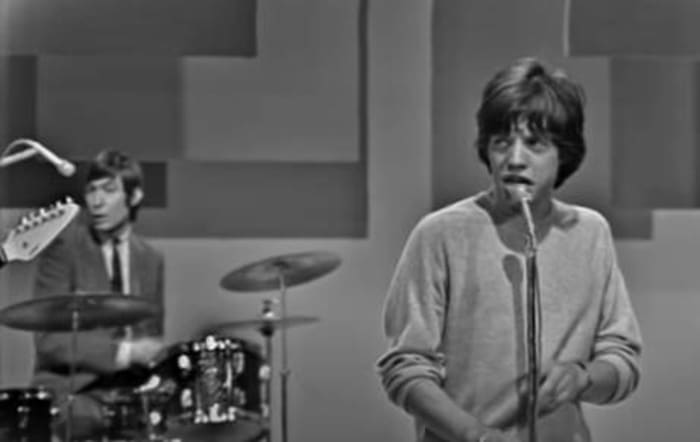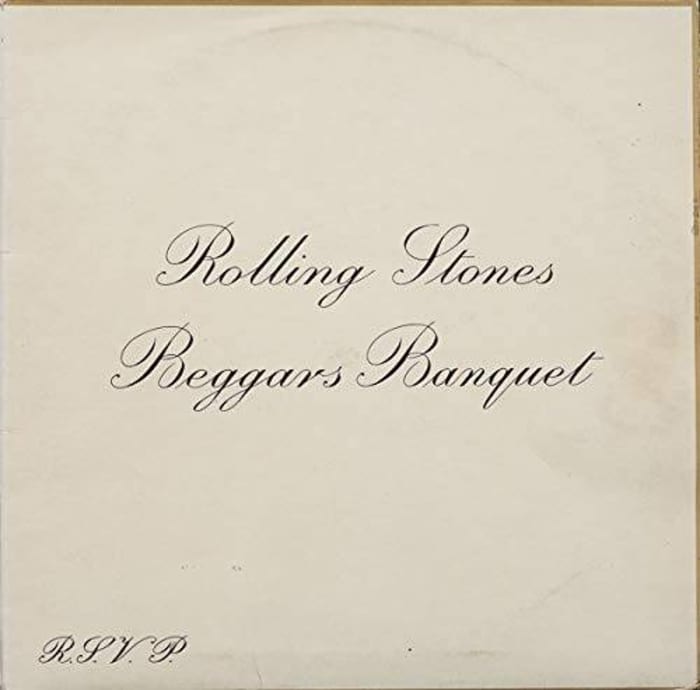- Home
- Quizzes
- My Quiz Activity
- Newsletters
- MY FAVORITES
- Add Sports/Teams
- SPORTS
-
NFL
- NFL Home
- Arizona Cardinals
- Atlanta Falcons
- Baltimore Ravens
- Buffalo Bills
- Carolina Panthers
- Chicago Bears
- Cincinnati Bengals
- Cleveland Browns
- Dallas Cowboys
- Denver Broncos
- Detroit Lions
- Green Bay Packers
- Houston Texans
- Indianapolis Colts
- Jacksonville Jaguars
- Kansas City Chiefs
- Las Vegas Raiders
- Los Angeles Chargers
- Los Angeles Rams
- Miami Dolphins
- Minnesota Vikings
- New England Patriots
- New Orleans Saints
- New York Jets
- New York Giants
- Philadelphia Eagles
- Pittsburgh Steelers
- San Francisco 49ers
- Seattle Seahawks
- Tampa Bay Buccaneers
- Tennessee Titans
- Washington Commanders
-
MLB
- MLB Home
- Athletics
- Arizona Diamondbacks
- Atlanta Braves
- Baltimore Orioles
- Boston Red Sox
- Chicago White Sox
- Chicago Cubs
- Cincinnati Reds
- Cleveland Guardians
- Colorado Rockies
- Detroit Tigers
- Houston Astros
- Kansas City Royals
- Los Angeles Angels
- Los Angeles Dodgers
- Miami Marlins
- Milwaukee Brewers
- Minnesota Twins
- New York Yankees
- New York Mets
- Philadelphia Phillies
- Pittsburgh Pirates
- San Diego Padres
- San Francisco Giants
- Seattle Mariners
- St. Louis Cardinals
- Tampa Bay Rays
- Texas Rangers
- Toronto Blue Jays
- Washington Nationals
-
NBA
- NBA Home
- Atlanta Hawks
- Boston Celtics
- Brooklyn Nets
- Charlotte Hornets
- Chicago Bulls
- Cleveland Cavaliers
- Dallas Mavericks
- Denver Nuggets
- Detroit Pistons
- Golden State Warriors
- Houston Rockets
- Indiana Pacers
- Los Angeles Clippers
- Los Angeles Lakers
- Memphis Grizzlies
- Miami Heat
- Milwaukee Bucks
- Minnesota Timberwolves
- New Orleans Pelicans
- New York Knicks
- Oklahoma City Thunder
- Orlando Magic
- Philadelphia 76ers
- Phoenix Suns
- Portland Trail Blazers
- Sacramento Kings
- San Antonio Spurs
- Toronto Raptors
- Utah Jazz
- Washington Wizards
-
NHL
- NHL Home
- Anaheim Ducks
- Boston Bruins
- Buffalo Sabres
- Calgary Flames
- Carolina Hurricanes
- Chicago Blackhawks
- Colorado Avalanche
- Columbus Blue Jackets
- Dallas Stars
- Detroit Red Wings
- Edmonton Oilers
- Florida Panthers
- Los Angeles Kings
- Minnesota Wild
- Montreal Canadiens
- Nashville Predators
- New Jersey Devils
- New York Islanders
- New York Rangers
- Ottawa Senators
- Philadelphia Flyers
- Pittsburgh Penguins
- San Jose Sharks
- Seattle Kraken
- St. Louis Blues
- Tampa Bay Lightning
- Toronto Maple Leafs
- Utah Hockey Club
- Vancouver Canucks
- Vegas Golden Knights
- Washington Capitals
- Winnipeg Jets
- NCAAF
- NCAAM
- Olympics
- Boxing
- Entertainment
- Lifestyle
- Golf
- MMA
- Soccer
- Tennis
- Wrestling
- Sports Betting
- More Sports
- RESOURCES
- My Account
- YB on Facebook
- YB on Twitter
- YB on Flipboard
- Contact Us
- Privacy Policy
- Terms of Service

The definitive Rolling Stones playlist
Sure, it would seem nearly impossible to select the 30 best songs released by the Rolling Stones during the band's legendary career. Why would one even try? Well, we did. Here's a chronological trip through the best songs (in our opinion) from the Stones, or least those that truly exemplify their collective greatness.
"Time Is on My Side" (1964)

This was not a Stones original, but proved to be the group's introduction to music fans in the United States. In 1964, they recorded two versions of the track known for its reliance on flowing rhythm. The single became the band's first-ever top-10 hit in America, peaking at No. 6 on the Billboard Pop Singles Chart. It's also fun to see a certain sense of innocence, at least on the surface, to the band when watching old videos of the performance.
"The Last Time" (1965)

"Time Is on My Side" was the band's first top-10 hit in the States, but "The Last Time" was the first original Stones track released as an A-side in the United Kingdom. As we'll see, the Rolling Stones were influenced by many types of musical genres. In this case, there is certainly a gospel feel to "The Last Time," but fused with the Stones' gritty brand of rock and roll. The Andrew Oldham Orchestra, a side project founded by the band's original manager Andrew Loog Oldham, was featured in the tune.
"(I Can't Get No) Satisfaction" (1965)

There are great rock songs. Then are iconic rock songs. Consider "(I Can't Get No) Satisfaction" part of the latter group. Opening with Keith Richards' memorable opening the riff, which then paces the duration of the song, "Satisfaction" is a tune about sexual frustration that has transcended the music world into various areas of pop culture (even the forgotten 1988 Justine Bateman comedy-drama Satisfaction). However, don't forget about Charlie Watts' dependably brilliant drumming. Included on the American version of the band's fourth studio album, Out of Our Heads, "Satisfaction" was the first Rolling Stones song to reach No. 1 in the United States.
"Get Off of My Cloud" (1965)

In the wake of "(I Can't Get No) Satisfaction," the Rolling Stones became bona fide rock stars in the United States — and pretty much everywhere else, for that matter. So, naturally the band was hounded for its time, but also to repeat the success of that breakout track with another superb hit. "Get Off of My Cloud" is a timeless Stones classic, but also a message to critics, record company big wigs and over-eager fans who pestered the boys for the next big hit. We think the guys ultimately answered the bell — time and time again.
"19th Nervous Breakdown" (1966)

The Rolling Stones were big fans and heavily influenced by legendary guitarist Bo Diddley. This classic single from 1966 is a perfect example of the band's love for Diddley, his playing and overall musical tone. Released amid some of the Stones' biggest and most celebrated hits, "19th Nervous Breakdown" — which ran nearly four minutes (long for the time period) — peaked at No. 2 on the Billboard Hot 100. Don't miss Bill Wyman's "dive-bombing" bass offering near the song's conclusion.
"Mother's Little Helper" (1966)

The Stones social commentary on the everyday housewife, who seems to be leading an unfulfilling life and apparently needs to self-medicate to get through the days. Not a big hit out of the gate for the band (though it did crack the top 10 in America), which is understandable since it doesn't have the bang of "Satisfaction" or "Get Off of My Cloud." However, as the decades have passed, "Mother's Little Helper" has rightfully earned its place among other Rolling Stones classics of the era. And as is known: 'What a drag it is getting old.'
"Under My Thumb" (1966)

Though never officially released as a single, "Under My Thumb" remains one of the Stones' most popular songs. And, perhaps, one of their more controversial numbers. A male, presumably, getting the upper hand on his female lover, wasn't an idea that went over too well with female listeners, and even some feminist activists at a time when women were still expected to remain in the home and not find a professional life of their own. The song has been lauded for Charlie Watts' perfect backbeat, Bill Wyman's fuzz bass lines and Brian Jones' use of the marimba.
"Paint It Black" (1966)

Obviously, there are many stellar examples of the immense, yet often overshadowed, talent that drummer Charlie Watts exuded as the backbeat of the Rolling Stones. However, the 1966 hit “Paint It, Black” is truly Watts at his best. Now, the it's one notable song were all five members of the band contributed heavily into the finished product. There's a certain Indiana/Middle Eastern vibe to "Paint It Black," as evidence through Brian Jones' incorporation of the sitar on the song.
"Let's Spend the Night Together" (1967)

Originally released as a double-A-side with "Ruby Tuesday," "Let's Spend the Night Together" was not even a Top 40 hit for the band in the United States. However, it remains another iconic Rolling Stones tune and, again, among its most controversial. Notably for having to change the lyrics of the song to 'let's spend some time together' in order to appear on the "Ed Sullivan Show" in January 1967. Something that did not sit well with Jagger and Co., who had some fun with the request, nonetheless.
"She's a Rainbow" (1967)

This just might be the most beautiful song, lyrically and musically, that the Rolling Stones have ever produced. And, certainly written by Jagger and Richards. Not to mention, the whimsical, psychedelic pop/rock features some exceptional musical performances. Like Nicky Hopkins' brilliant piano playing and the late Brian Jones' work on a unique instrument known as the mellotron. "She's a Rainbow," which can be found on its Their Satanic Majesties Request studio album, was a Top 40 hit for the band and real treat any time played live.
"Jumpin' Jack Flash" (1968)

Another iconic moment from the Rolling Stones, and among the most recognizable songs of all time. From another legendary Richards guitar intro to tight-as-double-knotted-shoelace drumming from Watts to Jagger's opening croon: 'I was born in a crossfire hurricane
And I howled at the morning drivin' rain.' It doesn't get much better for a music fan. According to Jagger, the lyrics stemmed from their recent experience on acid, but the overall tone of the track returns to the Stones' blues roots that ushered in their success earlier in the decade.
"Street Fighting Man" (1968)

Released in December 1968, Beggars Banquet was a return by the Stones to the blues and roots rock that made them famous in the first place. "Street Fighting Man" was part of that record. It's straight-forward, in-your face rock, that still includes some of the progress the band had made in experimenting with its overall sound. Though among the band's most covered tracks, "Street Fighting Man" did not crack the Top 40 in the U.S.
"Sympathy for the Devil" (1968)

'Please allow me to introduce myself / I'm a man of wealth and taste / I've been around for a long, long year / Stole many a man's soul and faith.' We can argue for days if this is the Stones' greatest musical effort, but we should agree these might be the most memorable opening words to any song. When telling a story from Satan's perspective, it's important to offer a proper introduction. Rock fans have never forgotten the one given by the Rolling Stones. There are songs we know will be special from the opening words, and this is one of them, from the Beggars Banquet LP. Simply legendary.
"Gimme Shelter" (1969)

Following Brian Jones' death at age 27 and with Mick Taylor stepping in on guitar, the Stones put out Let It Bleed. It's one of the band's most celebrated albums, encompassing several different styles, but with its dependable blues rock underlay. "Gimme Shelter," the opening cut, has long been considered the high-water mark of the record, and perhaps the most critically praised song the Stones ever produced — which obviously is saying much. "Gimme Shelter" is a gritty, edgy track with violent undertones released amid one of the most volatile times in world history, with the Vietnam War and civil right issues at the forefront.
"You Can't Always Get What You Want" (1969)

We just highlighted the brilliant opening track from Let It Bleed, and now to the finale — which, like several songs on this list, is another example of pop culture iconography. "You Can't Always Get What You Want" has been a part of music, film, television, and pretty much everyday vernacular. Maybe it's not every Stones' fans cup of tea, but even casual listeners have heard this famed track, which Jagger created at home strumming on an acoustic guitar. It's a true original, making prominent use of the organ, congas, maracas and the memorable operatic backing vocals.
"Honky Tonk Women" (1969)

Released as a single in July 1969 is "Honky Tonk Women," with the aforementioned "You Can't Always Get What You Want" as the B-side. Digging deep into the Rolling Stones' country influences, "Honky Tonk Women" is known for the opening (and sustaining) cowbell riff played by album producer Jimmy Miller, followed by more famous guitar licks from Keith Richards. It proved yet another major hit for the Stones, topping the Billboard Hot 100.
"Brown Sugar" (1971)

At the beginning of the 1970s, the Stones continued their success with 1971's Sticky Fingers. Kicking off the album is "Brown Sugar," another classic, with the "groove" tune primarily written by Mick Jagger. The song was reportedly inspired at least in part by his girlfriend at the time, Claudia Lennear, who was a member of Ike and Tina Turner's backing outfit the Ikettes, though another former Jagger girlfriend (and mother of his first child Karis) Marsha Hunt disputes this. With references to drugs, interracial sex, and even slavery, it's up there with some of the band's most controversial efforts. Despite this, it was another Billboard No. 1 track and has long been a favored staple of the group's live shows.
"Wild Horses" (1971)

On par with "Brown Sugar," when it comes to iconic and celebrated Rolling Stones songs. Also found on Sticky Fingers, "Wild Horses" was written by Jagger and Richards, along with renowned American musician/songwriter Gram Parsons, and initially released by the Flying Burrito Brothers in 1970. When the Stones' version of the ballad — a rather emotional one for the boys about loathing life on the road touring — was put out, it never cracked the top 20 in the United States. Over the years, though, it became a major part of the Rolling Stones' legacy, and covered countless times.
"Sweet Virginia" (1972)

We know the Stones had a thing for country music. And while the aforementioned "Honky Tonk Woman" is usually associated with that genre from the band's catalog, "Sweet Virginia," off the classic Exile on Main St., might truly capture the Stones' love of that country sound. A Jagger/Richards production, this song features the great Bobby Keys on the sax, Charlie Watts' "shuffle" rhythmic drumming, and a harmonica solo from Jagger himself. Easily one of the band's unbridled tunes when it comes to celebrating the influences that led to its greatness.
"Tumbling Dice" (1972)

Perhaps the most recognizable hit from Exile on Main St.. "Tumbling Dice" — one of those tracks that is definitely synonymous with the Rolling Stones — has been covered countless of times and is a perfect example of the musical versatility possessed by the collective. "Tumbling Dice" is bluesy, groovy, and easy to sway to or boogie along with — a musical trip, like a train chugging along at the perfect tempo, but in no real hurry to get anywhere. It was a top-10 hit in both the U.S. and U.K.
"Rip This Joint" (1972)

Exile on Main St. is a hodgepodge of sound, but there are several quality "rockers" in the lineup ("Rocks Off," "Happy"). Then there is "Rip This Joint," which just might be the fastest, heaviest song in the entire Rolling Stones musical arsenal. There's an obvious rockabilly vibe to the tune, but this is pure, unadulterated rock. "Rip This Joint" was not a commercial hit for the band, and is not the first track thought about when speaking of these legends. However, this effort is precisely what they were all about from a true musical sense.
"It's Only Rock 'n Roll (But I Like It)" (1974)

Another No. 1 track for the Stones, and a longtime live favorite that tends to get the crowds dancing and singing along. A celebration of music, "It's Only Rock 'n Roll (But I Like It)," from the album of the same name, features some of the world's most prominent musicians contributing to the song. Like future Stone Ronnie Wood, Kenney Jones on drums and David Bowie providing backing vocals on the original recording. Jagger's creative and descriptive lyrics offer another commentary on how the band continued to be pressed for the "next big hit."
"Miss You" (1978)

The opening track and lead single from the Stones' deliciously sultry Some Girls album from 1978. A record that, like or not, had the band associated with the disco movement. There are certainly elements of disco, and plenty of subtle jazz, on this smoothly grooving tune that's long been considered one of the best of the era. Check out Charlie Watts' shuffle drumming on the track and that time-holding, rhythm-driving bass work from Bill Wyman. "Miss You" topped the Billboard Hot 100.
"Shattered" (1978)

From the opening number of Some Girls to the album's stellar closer. "Shattered" is another popular Stones tune that never enjoyed mainstream chart success. However, the song — which doesn't detail the most positive experience of living in big-city America (specifically New York City) — has long been a fan favorite thanks to Jagger's quirky lyrics and Richards' riffs and overall guitar work, which utilizes a phaser sound effect.
"She's So Cold" (1980)

Another Rolling Stones that had a nice little home among the disco era. And, music fans might be interested to know that this tasty number from Emotional Rescue (1980) actually topped the Billboard Disco Top 100. Now, this was not a mainstream hit for the band. However, during the decade of the 1980s, which brought the Stones various levels of success and plenty of chiding, "She's So Cold" stands out as one of the more underappreciated moments in their history. Also, there's more subtly exceptional guitar work from Keith Richards.
"Start Me Up" (1981)

It can be argued that "Start Me Up" is a true rock anthem. Much like the Star Spangled Banner, "Start Me Up" is almost regularly played at most American sporting events. Originally recorded for the Some Girls sessions in the late 1970s, "Start Me Up," complete with another famous opening Richards guitar riff, was part of the outtake-laden gem Tattoo You (1981). One of rock and roll's most recognizable tunes, it reached No. 2 on the Billboard Hot 100 and continues to be appreciated by generations of music fans.
"Waiting on a Friend" (1981)

Another gem from Tattoo You. The album's closer was actually conceived during the early 1970s, but finally found its way onto a Rolling Stones record nearly 10 years later. The song, which made it into the top 15 on the Hot 100, was lauded for Jagger's lyrics, which showed off a sign of maturity as both a person and songwriter. Jagger chooses to focus on the importance of friendship and those who matter most, as opposed to wild nights, loose relationships and other vices that consumed the rock star for years.
"She Was Hot" (1983)

One of the great aspects of the Rolling Stones' music, whether talking lyrics or general sound, was the raunchiness it exuded. It just might be the most sexual band around. This highly underrated gem from Jagger and Richards is down-and-dirty rock and roll. With Jagger describing his trials of courtship and Richards, wailing away on his guitar, "She Was Hot," from 1983's Undercover," might be the best Stones song post-Tattoo You.
"Mixed Emotions" (1989)

In 1989, the Rolling Stones released Steel Wheels, a record that critics and fans considered a comeback of sorts for the band, considering the lukewarm responses to the band's previous albums — Undercover (1983) and Dirty Work (1986) — and the fact Jagger and Richards had endured a fray in their relationship. However, they returned for Steel Wheels, with "Mixed Emotions" serving as the lead single. Not the best the group has delivered, but it marked a return to modern-day prominence and reached No. 5 on the Hot 100.
"Angry" (2023)

As we conclude this chronological tour of the Stones' brilliant and legendary arsenal of music, it's important to span the decades, even as the sun eventually sets on the band. The lead track from the October 2023-released Hackney Diamonds, "Angry" has elements of the classic Rolling Stones sound, but been described by the band, and various critics, as a relatively "fun" song. Meanwhile, Jaggar's voice exhibits no signs of fading, while Richards' reliable riffs are ever present. "Angry" was well-received upon release in September, and nominated for the Best Rock Song Grammy.
A Chicago native, Jeff Mezydlo has professionally written about sports, entertainment and pop culture for parts of four decades. He was an integral member of award-winning sports sections at The Times of Northwest Indiana (Munster, Ind. ) and Champaign (Ill
More must-reads:
- TV character deaths that we won't forget anytime soon
- 23 TV characters who simply vanished without a trace
- 22 of the most anticipated movie releases in 2025
- One and done: 20 awesome movies we never want to watch again
- 20 TV couples that became legendary when they finally got together
Customize Your Newsletter
 +
+
Get the latest news and rumors, customized to your favorite sports and teams. Emailed daily. Always free!
PRIVACY POLICY EDITORIAL POLICY CONTACT US
ABOUT YARDBARKER TERMS OF SERVICE
Use of this website (including any and all parts and
components) constitutes your acceptance of these
Terms of Service and Privacy Policy.
This site is for entertainment purposes only.
There is no gambling offered on this site.
Gambling Problem? Call 1-800-Gambler.








